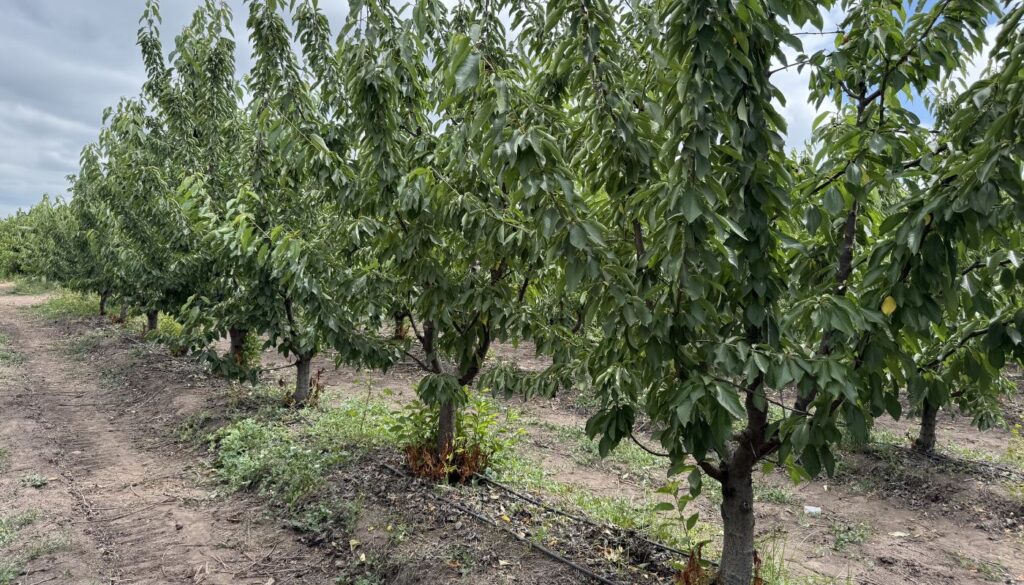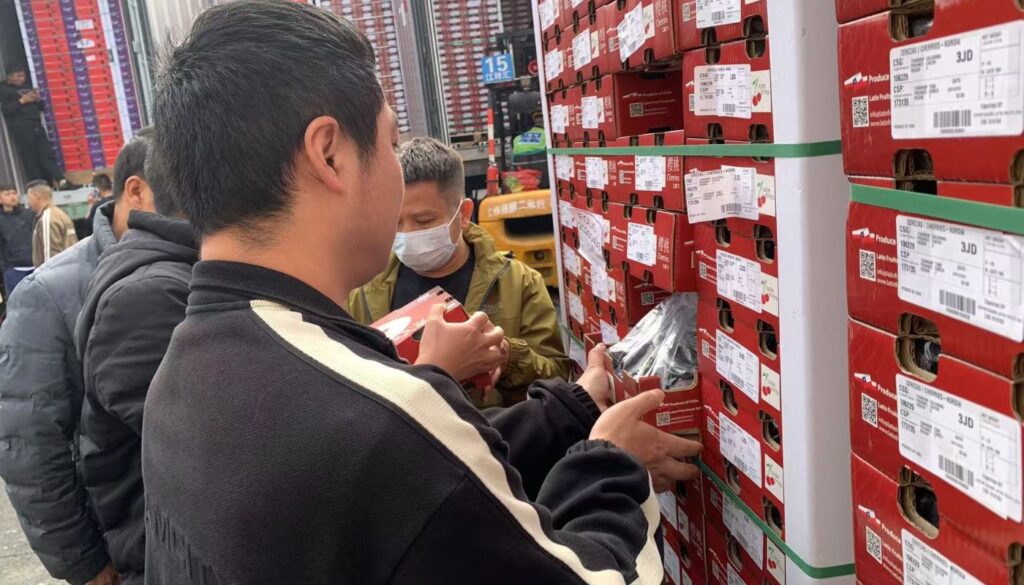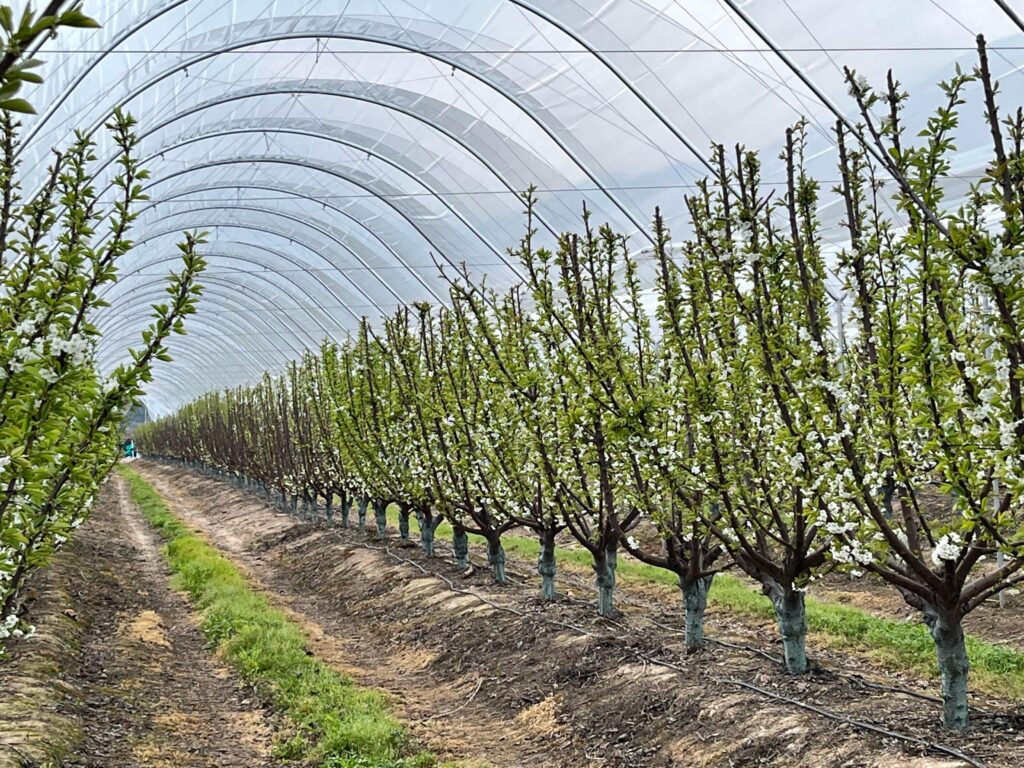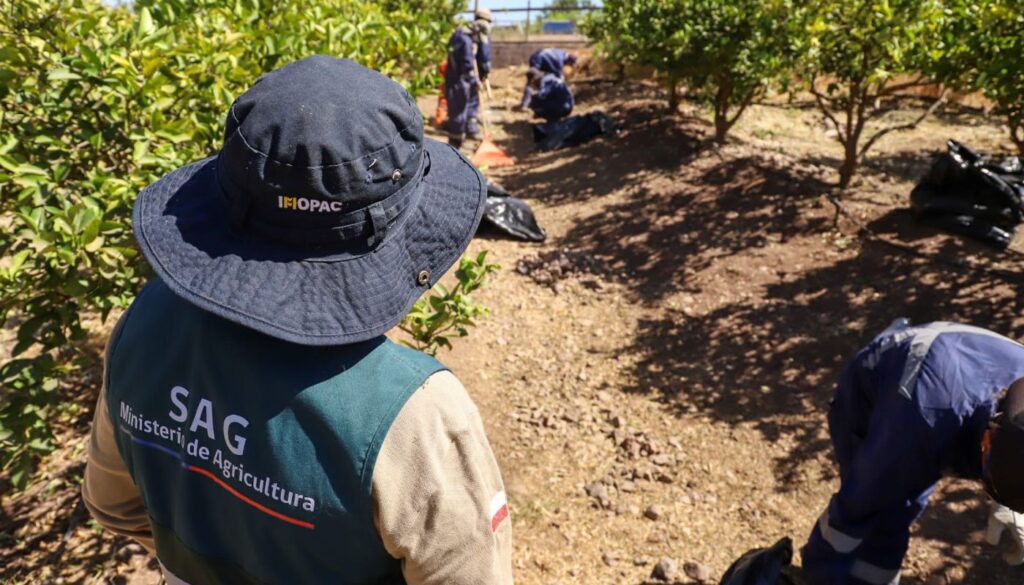Collaborative work of more than 14 years between both institutions seeks, through genetic improvement, the first cherry created entirely in national territory.
Surely “Selection 21” (S-21) says absolutely nothing, it could even seem like something sporting, but if it is specified that it corresponds to the consecutive number of the selection that is on its way to becoming the first Chilean 100% cherry variety, the achievement speaks for itself.

The Agricultural Research Institute (INIA) has been involved in research and development for over 14 years, in collaboration with the Biofrutales Consortium, working on the Cherry Genetic Improvement Program (PMG), with the aim of achieving a high-quality product with commercial potential adapted to the demands of the Chilean export industry.
The step taken by the S-21 has been to successfully overcome the first institutional link, by being approved unanimously by the Regional Committee for the Release of New Varieties of INIA, a milestone for regional and national fruit growing, awaiting the next steps that entail its full approval, protection, registration, and subsequent commercial cultivation.

Regarding the technical aspects, the director of the Cherry Genetic Improvement Program and INIA Rayentué researcher, Dr. José Manuel Donoso, points out that “Selection 21 was selected in the Coquimbo region, and therefore, it has a natural genetic adaptation to the conditions of a warm temperate climate and, therefore, to regions with a low supply of winter cold. It has subsequently been evaluated in the central-southern part of the country, which expands its cultivation possibilities for the regions of Valparaíso, Metropolitana, O'Higgins and Maule. After five consecutive seasons of evaluation on the MaxMa 14 pattern, in the Rengo commune, it has shown medium vigor and a semi-erect growth habit, with excellent production in twigs of the year, which enhances the quality of the fruit, both at the harvest and post-harvest levels.”
In concrete terms, it is a bicolor cherry variety, located in the Rainier segment, where it has a good flavor, is large and firm, with a greater propensity for larger jumbo and superjumbo sizes, good color and in very good condition after 30 days of cold storage, which confirms its export potential to distant markets.

“For INIA Rayentué, this is an important achievement, since our center has been a fundamental part of the entire evaluation process during these 14 years. The team of researchers behind all this work has carried out meticulous work to be on the verge of this important milestone today. This first step towards achieving the first Chilean cherry variety is very relevant, especially that it takes place in the O'Higgins Region and in our center. We hope that the research and development that has been carried out will come to fruition and that we will soon be talking about the first national 100% cherry, of great quality and with a potential to be discovered. We are very happy with this achievement and for those who made this possible,” said Cristian Aguirre, regional director of INIA Rayentué.

In addition to the attributes already mentioned, “S-21” has calibers between 32 and 34 and can reach up to 90% coverage, which helps achieve uniformity in the face of the problems presented by Rainier. In addition, it has a high sweetness and is very firm to the touch according to Firmtech parameters.
Rodrigo Cruzat, manager of the Biofrutales Consortium, indicated that “Being able to develop national genetics that are adapted to the demands of our industry and our end markets is a source of pride not only for the Consortium and for INIA, but also for the country. The size of the fruit industry and the cherry sector in Chile - being the main exporter in the southern hemisphere and one of the main ones in the world - cannot rely solely on foreign genetics and as such must take charge of its own challenges. Along with congratulating the work of INIA, we must acknowledge the support of the companies that support the program: Univiveros, El Tambo and ANA Chile, and of course the support of Corfo, which has been fundamental for this project.”
The Cherry Genetic Improvement Program is headed by Dr. José Manuel Donoso, genetic breeder, Jaime Otárola, Mg. Sc., fruit grower, and Boris Sagredo, Ph.D., molecular biologist, all professionals belonging to INIA Rayentué.












